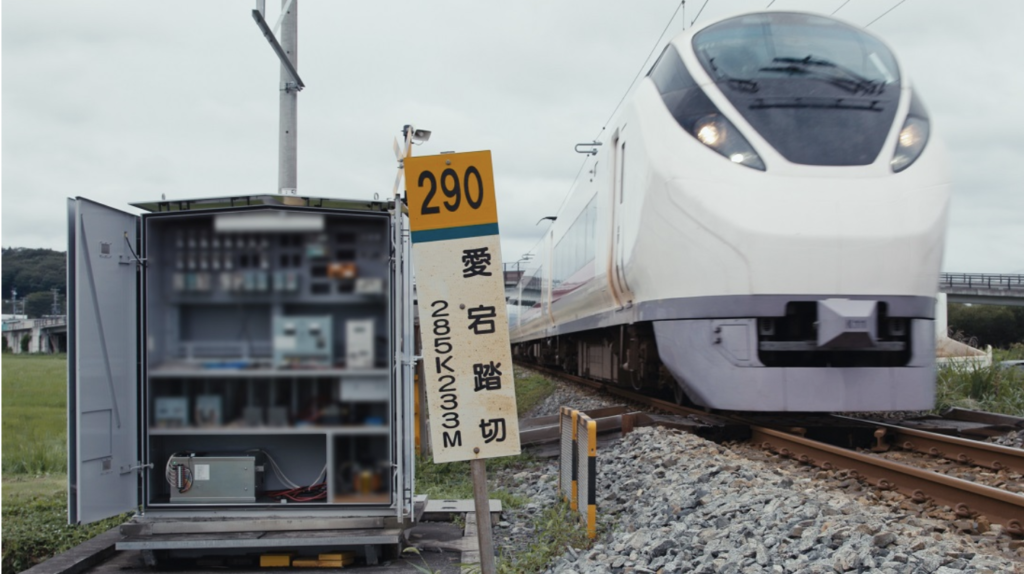Nissan is trialling the use of repurposed LEAF EV batteries in railroad crossing devices, with the East Japan Railway Company (JR East).
Rail companies install emergency power supply units at each crossing to ensure they operate at all times. This includes during scheduled maintenance work and temporary power outages.
Currently, these emergency power supply units use lead-acid batteries. However, efforts to replace these with repurposed Nissan LEAF batteries began earlier this year at the Atago railroad crossing on the Jōban Line, which runs through Minamisoma City in Fukushima Prefecture.
According to Nissan, LEAF’s lithium-ion battery retains 60 to 80% of its electricity storage capacity at the end of its life cycle in a car. Therefore, by reusing used EV batteries the manufacturer can direct this remaining energy capacity elsewhere, such as into new replacement vehicle batteries or stationary batteries.
Nissan’s partner, 4R Energy Corporation, is responsible for this repurposing, which can reduce the CO2 emissions and rare resource usage associated with building a new battery from scratch.
Furthermore, it adds additional value to EV batteries increasing the value of EVs in general, and leading to their wider adoption, Nissan said.

For Kaito Tochihara, assistant chief researcher at the JR East R&D centre, the repurposed EV lithium-ion batteries not only promotes sustainability, but also leads to improved performance from the battery itself.
Compared to lead-acid batteries, the reused lithium-ion variety requires only a third of the charging time. The batteries are also far more durable, lasting on average 10 years, compared to three to seven years for a standard battery.
Tochihara said: “With lead-acid batteries we have to periodically visit railroad crossings to check the state of charge and any deterioration. However, with repurposed lithium-ion batteries, there is a control system attached, similar to an EV, so we can remotely check the battery’s status.
“This should lead to improved maintenance standards. This system also enables preventative maintenance by informing us of the battery’s status before its voltage becomes too low.”
Tochihara explained that “railroad crossings are points of contact between trains and public roads, so they have to be extremely safe and reliable. At 4R Energy Corporation, we develop our repurposed lithium-ion batteries from batteries designed for cars. Similar to a railroad crossing, such batteries require a high level of safety and security. Their reliability gives us the confidence to carry on our efforts.”




